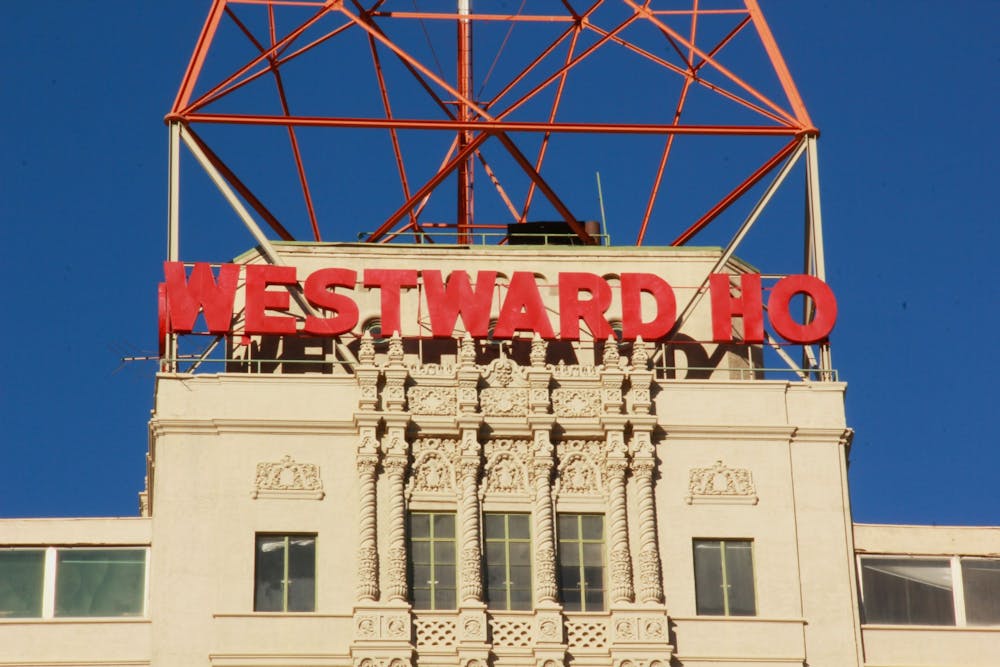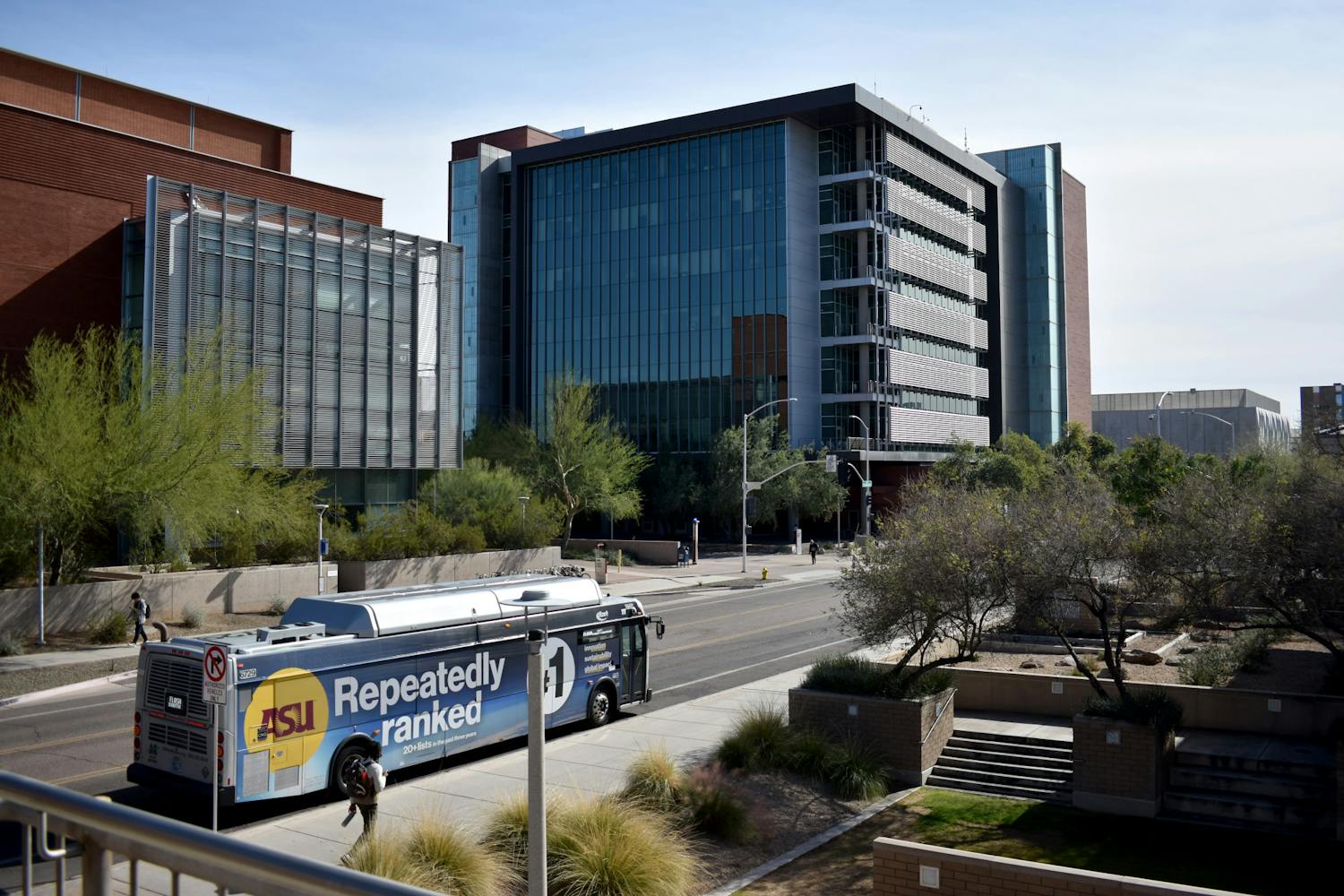Since 2016, student interns with the ASU Community Collaborative have worked to provide residents of the Westward Ho with in-person nursing services, music, recreational therapy and more — until the COVID-19 pandemic struck.
Now, the collaborative has learned to operate remotely and socially distant; students have pen pals in the Westward Ho they write to, hold virtual therapy sessions with residents, and operate a food cart.
The collaborative is run by the Center for Applied Behavioral Health Policy, Watts College of Public Service and Community Solutions, College of Health Solutions and Edson College of Nursing and Health Innovation and is staffed largely by student interns from the colleges.
ASU leases space on the first floor of the Westward Ho, located near the Downtown Phoenix campus, where it hosted group activities before the COVID-19 pandemic.
The Westward Ho was once a 600-room hotel that has now transitioned to a nearly 300-unit housing complex for low-income individuals who are disabled or elderly.
The collaborative works to provide the residents with therapy and activities to occupy their time during the day. Student interns are in charge of running group sessions or doing therapy with the residents, providing them real-world experience in their majors.
"One important thing that I've learned is that this population is very ignored," said Adrine Rodriguez, an intern at the Community Collaborative and graduate student studying social work. "Many of the residents' only support system is the Community Collaborative."
Due to the COVID-19 pandemic, the collaborative was closed for a period of time, leaving residents without the services it provided, and with the students and staff searching for new ways to connect to them.
“Not all of the residents know how to operate technology, and the majority of them do not have internet," said Stacey Gandy, coordinator of the Community Collaborative and instructor at Watts College. Finding ways to continue to help, while also being safe, was a challenge, she said.
Students had the idea to start a pen pal program with residents to continue to interact with them, Gandy said. While they wrote, they worked to find new, safe ways to connect.
Therapy sessions are now done over the phone; in-person groups meet outdoors at the Civic Space Park; a food cart is operated inside the leased space with only two residents allowed in at a time.
From Wednesday to Friday, 9 to 10 a.m., residents can receive non-perishable food products and sanitation items for free at the food cart, Gandy said.
At the park, the students host events where residents can come out and interact with one another in different group sessions while socially distant and with face coverings, Rodriguez said.
“These activities and sessions are ways for the residents to be able to talk with people that are in similar situations to them and build a sense of community because many of them do not have that in their lives," said Brandon Falk, an intern at the Community Collaborative and graduate student studying social work. "Being able to understand the population of residents here and becoming a part of their lives in some way was the best part of being in the program for me."
Louise Burch, a resident at the Westward Ho, said she enjoys seeing the other residents and students when they can meet.
“Every time I go to see the students and staff they are all so friendly," she said. "They all know me now and it is just awesome. Before COVID, I would spend my whole day there. I don't think there is a single thing I don't like about being there."
Reach the reporter at lkobley@asu.edu and follow @LKobley on Twitter.
Like The State Press on Facebook and follow @statepress on Twitter.
Continue supporting student journalism and donate to The State Press today.

Lauren Kobley is a reporter for the Community and Culture desk at The State Press. She has previously interned with the Fountain Hills Times.




